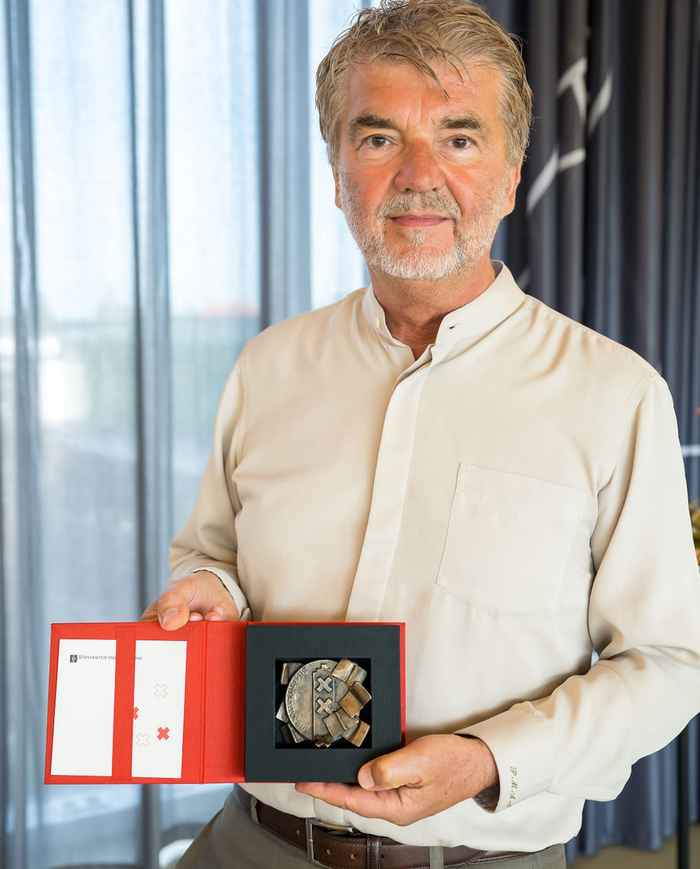Peter Sloot receives UvA Honorary Medallion
23 June 2022

Executive Board president Geert ten Dam presented the awards during the annual Medallion Day, which took place on Friday, 17 June, at de Brug on Roeterseiland.
All five laureates are highly motivated people with a great passion for their work and for the UvA and the university community,' says Ten Dam. ‘They always go the extra mile: they take the initiative and are persistent. In this way they have been able to achieve great things for the university and we are very grateful to them for that. We are now making our appreciation widely known by awarding them UvA Honorary Medallions.'
Interdisciplinary vision
Sloot has been one of the main drivers of the interdisciplinary vision of research at the UvA, influential in both Computational Sciences and Complexity Sciences. In the 1990s, he sowed the seeds for the internationally recognised Amsterdam school of Computational Sciences.
Computational Science Lab
He was the driving force behind the Computational Science Lab at the Informatics Institute, the Master's programme in Computational Science, the leading International Conference for Computational Science, and the successful Journal of Computational Science. In addition, he has worked at many levels within the UvA and far beyond to further develop and apply the study of complex systems as a connecting language and method in interdisciplinary research. This approach has since been emulated in many places both within the UvA and elsewhere.
Institute for Advanced Study
One of Sloot's most impressive achievements is the way in which he initiated the Institute for Advanced Study (IAS) and, as scientific director, managed to make it a great success with interdisciplinary research, computational and complexity sciences at its core.